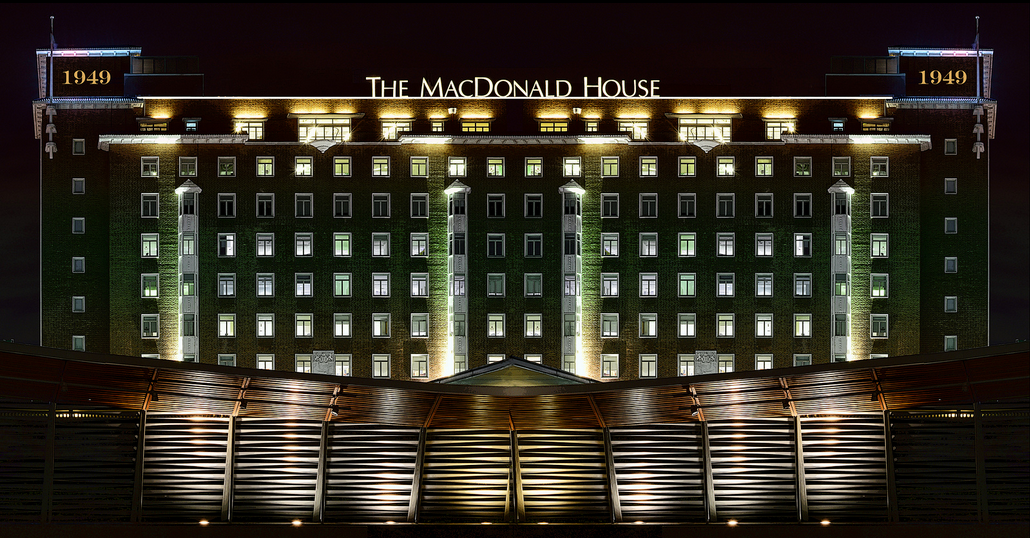Why is it important to understand our society’s history?
As a student, your Singapore history knowledge will enable you to excel in your Character and Citizenship Education (CCE) lessons.
(Editor's Note: 1970/1980s kids, CCE is your version of the “好公民” series).
As a contest participant, your mastery of "Singapore trivia" can save you in game shows like We Are Singaporeans.
Anyway, we appreciate our history not just to score more points or win more prizes in game shows.
With our political leaders taking the lead in being our history teachers, three incidents last week highlight the reasons why we should care more about our past.
1. We can offer diverse perspectives to issues
The first incident this week was Indonesia’s decision to name its new navy ship Usman Harun.
The ship was named after two marines, Osman Mohamed Ali and Harun Said. They were tried and hanged for a 1965 bombing of the MacDonald House on Orchard Road that left three people dead and 33 injured.
Back in Indonesia, the marines were conferred the status of national heroes. Hence, the Indonesians felt that it was their right to honour the two men.
The Singaporean government was not pleased. This led to not one, but five Ministers raising their concerns and dismay with their Indonesian counter parts.
DPM Teo Chee Hean and Defence Minister Ng Eng Hen
Source: Ministry of Home Affairs Website
Foreign Minister K Shanmugam
Source: K Shanmugam Facebook Page
Minister for Social and Family Development Chan Chun Sing and Second Minister for Defence
Source: Chan Chun Sing Facebook Page
Ag Manpower Minister Tan Chuan-Jin
Source: Tan Chuan-Jin Facebook Page
The Ministers rightly pointed out that this incident was "insensitive" and "reopen old wounds" among the victims and their families.
But I found it unfortunate that our political leaders have to lead the conversation in this matter. They had to offer history lessons, personal stories and appropriate responses to the Indonesians' actions.
If more Singaporeans are engaged in our nation's history, I am sure the populance, the mainstream media and the MPs could have offered more diverse and informed perspectives to this incident.
Here is what an engaged citizen could have done - Read the informed views of former defence correspondent David Boey. He concluded that it was Singapore's right to decline the passage of Usman Harun just as it was the sovereign right of Indonesia to call their warships anything they want.
2. We can influence government policies
Source: Lee Hsien Loong Facebook
The second event this week was PM Lee Hsien Loong's call to honour Singapore's Pioneer Generation.
He announced that about 450,000 Singaporeans aged 65 years and above are eligible to receive the Pioneer Generation Package. The package focuses on healthcare benefits.
Obviously, Singaporeans are supportive of the government's efforts to appreciate our seniors.
But helping out the 1st generation of Singaporeans should not be left to solely the government.
As our population ages, a new social compact is needed to take better care of our pioneer and 2nd generation of Singaporeans.
Taking care of our seniors should be a collective societal responsibility.
In the words of a Chinese idiom of 饮水思源 (Don't forget your roots), we will evolve as a society that values our citizens regardless of race, religion, disability or age.
3. Debate issues on a deeper level
Lastly, can we draw any lessons from the Tan Cheng Bock brouhaha?
Dr Tan, a former People’s Action Party (PAP) MP, said in a Facebook post that he was “un-invited” from a yearly Istana party organised by the People's Association (PA), one which he attended every year since 1980.
Below is PA vice chairman and labour chief Lim Swee Say's explanation:
Source: Lim Swee Say Facebook
Netizens criticised PA's change in "policy". They highlighted the politicisation of PA and demanded to know who was "wrongly invited".
But what both the PA and the netizens had in common was to focus our understanding of "politicial history" on the past election.
PA wanted to limit the ex grassroots advisers (mostly MPs) to those who stood down in the past GE to enable more invitees to attend the reception. Netizens wanted to "lionise" Tan Cheng Bock and his efforts during the last Presidential election.
I wonder if deeper questions could be asked in this incident.
For instance, how much do we appreciate public service? How much do we value his/her contributions to the nation? Do we only appreciate service if the contributions are exceptional?
Is public service limited by the duration he or she has served? Or is it judged by the type of appointments he/she held?
As novelist and journalist George Orwell said in his book 1984, “the most effective way to destroy people is to deny and obliterate their own understanding of their history.”
A deeper sense of history will drive us to write more well-rounded chapters of the Singapore Story.
With incidents like these occuring on an increasingly frequent basis, the 50th anniversary of Singapore's birth comes at an important time.
Let's take this opportunity to reassess and reflect on our history. It will do us some good in uniting us as one people.
Top photo from Flickr.
If you like what you read, follow us on Facebook, Instagram, Twitter and Telegram to get the latest updates.







